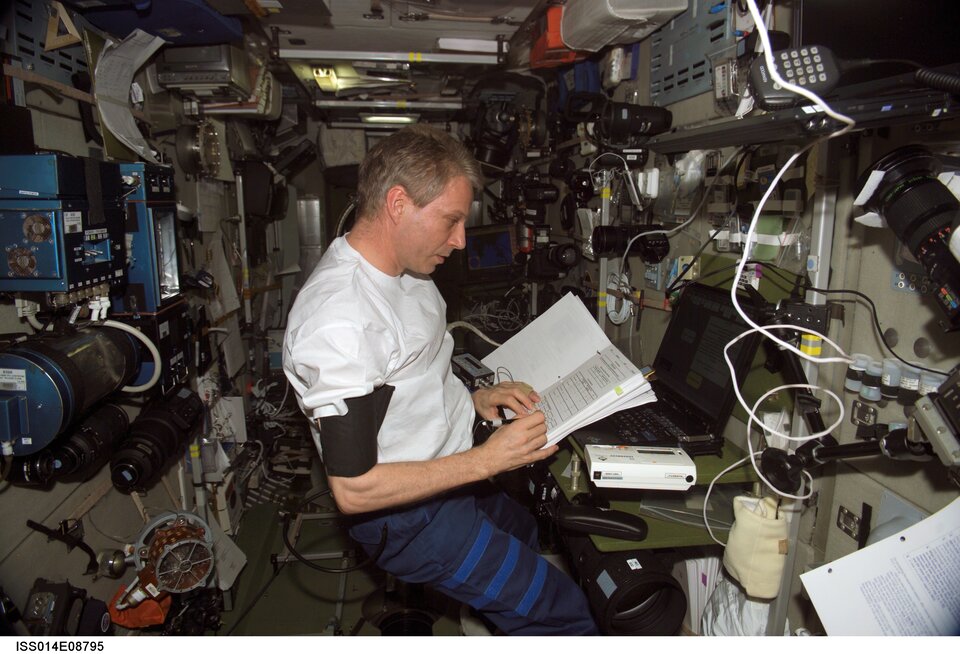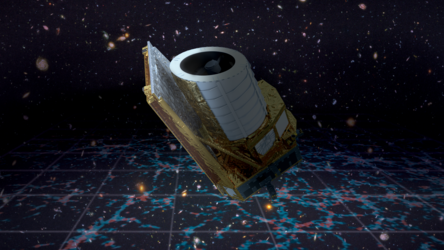ESA presents an exciting new training course on Human Space Physiology
What is it really like to live in space? And what happens to the body in microgravity? Now, thanks to a new training course being offered by ESA’s Education and Space Medicine Offices, medical and biology university students can find out.
ESA’s Education Office is inviting BSc and MSc university students studying medicine, allied healthcare subjects, life, biomedical or biomedical sciences to apply to the Human Space Physiology training course. The course will be held between 30 January and 2 February 2017, when selected students will be invited to the ESA Academy Training and Learning Centre at ESA’s Redu Centre in Belgium.
Students will discover how spaceflight represents a significant physiological challenge for the human body. Having evolved in Earth’s gravity, our bodies must adapt when in microgravity. These changes to the human body must be understood in order to be able to develop effective strategies to support humans during prolonged missions to space.
During the four-day course, students will learn from ESA and external experts. They will learn about the range of approaches used to study the physiological effects of spaceflight, including various ground-based analogues and models of the space environment, such as long-term (head down) bed rest and over-wintering in Antarctica. Approaches to mitigate the effects of weightlessness on the human body will also be discussed.
In addition to face-to-face and videoconference lectures, students will work on a mini-project in groups of 4 or 5 and will present it to the other participants on the final day of the course. Topics will include major issues and challenges facing human spaceflight. These could be: Female health - how could/should female astronaut health be addressed? Should it be studied separately from that of males?; Bouncing babies: what could the biological effect of being born in partial gravity be on human development?

The students in Redu will be joined by students at the European Astronaut Centre (EAC) in Cologne, Germany, who are registered in partner programmes such as the Space Physiology & Health MSc run at King's College London (UK). The two sites will collaborate via video conferencing.
In summary, the students can expect to be introduced to the following topics:
- What it’s really like to live in space
- The challenges, lessons, and successes that have led to permanent occupation of the International Space Station, and the conditions it must provide to protect and support life
Human Space Physiology research is performed both in space and on Earth
- How the senses perceive being ‘weightless’ in an orbiting space vehicle
- How key physiological systems respond to microgravity, what mechanisms underlie these changes, and some approaches that may be used to mitigate such effects
- Major issues and challenges facing current human spaceflight and future space exploration.
Interested students can fill in the application form here. The deadline for submission of completed applications is 28 November 2016 at 23:59pm CET.
Further information

Who can apply?
Students enrolled in university and who fulfill the following criteria at the time of application may be eligible:
- be aged between 18 and 32;
- be a citizen of an ESA Member State*;
- be enrolled as a full-time BSc or MSc student (or equivalent) in a university in an ESA Member State studying medicine, allied healthcare subjects, life, biomedical or biological sciences.
The deadline for application is 28 November 2016 at 23:59pm CET.
The selected students will be sponsored by ESA’s Education Office. The sponsorship will cover accommodation and meals as well as up to 200 euros for travelling to Redu, Belgium.
How do I apply?
- Fill in the application form;
- Upload a motivation letter (PDF, maximum 1 page, no images);
- Upload a CV (PDF, maximum 2 pages);
- Upload a formal recommendation letter (PDF, maximum 1 page, including signature, no images) from a university professor or an academic supervisor;
- Upload an official copy of academic records.
- Upload a short abstract (maximum 500 words) based on the title “Being in space induces de-conditioning of numerous physiological systems. Briefly define the major changes observed in a single physiological system. (PDF, no images);
For more information, please contact: esa.academy @ esa.int















 Germany
Germany
 Austria
Austria
 Belgium
Belgium
 Denmark
Denmark
 Spain
Spain
 Estonia
Estonia
 Finland
Finland
 France
France
 Greece
Greece
 Hungary
Hungary
 Ireland
Ireland
 Italy
Italy
 Luxembourg
Luxembourg
 Norway
Norway
 The Netherlands
The Netherlands
 Poland
Poland
 Portugal
Portugal
 Czechia
Czechia
 Romania
Romania
 United Kingdom
United Kingdom
 Slovenia
Slovenia
 Sweden
Sweden
 Switzerland
Switzerland


























